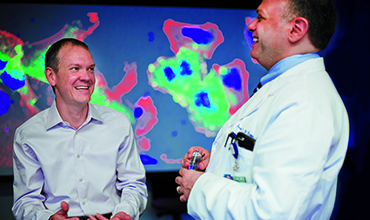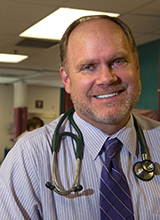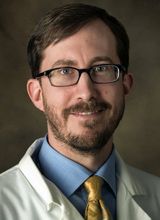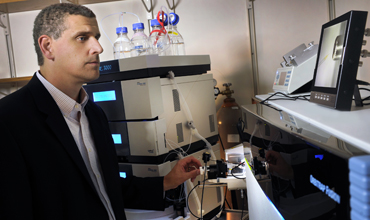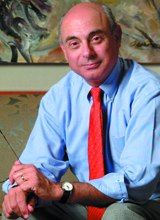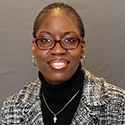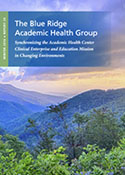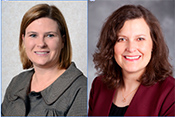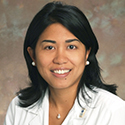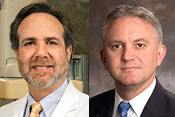
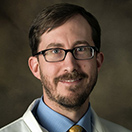 Accelerating health services research Accelerating health services research |
 Seeking input on presidential search Seeking input on presidential search |
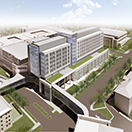 What goes where in EUH expansion What goes where in EUH expansion |
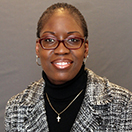 In brief In brief |
| January 27, 2016 | |||||||||||||||
New website consolidates access to clinical trials at Emory
A new Emory clinical trials website includes an easy-to-access database that connects potential volunteers to new clinical trials.
Potential participants can search for trials related to a specific health condition or browse topic areas such as cardiology, cancer, or the neurosciences and view quick facts about each of the individual trials available at Emory. The new site is available to the entire Emory community as well as to interested external participants. Although many clinical trials are seeking patients who have a particular disease, many others are seeking healthy volunteers. Information about each clinical trial includes its purpose, timing, investigators, process, and certain key eligibility criteria. Potential volunteers can click on a link to the leader of each individual trial and send a message asking to participate or requesting additional information. A link to the NIH clinical trials database is available for those seeking more detailed information. The clinical trials website also includes frequently asked questions about volunteering and information on additional resources at Emory for potential participants. Individuals also may register through a national database that connects potential volunteers to new clinical trials seeking volunteers. Read more. Accelerating health services research at Emory
Earlier this month, Barrett Bowling, an MD/MSPH geriatrician, inaugurated a course to help junior faculty and fellows in medicine and nursing learn how to conduct health services research (HSR), which he defines as "a multidisciplinary field that examines how health care is organized, financed, and accessed in order to provide data, evidence, and tools to make it safe, affordable, effective, equitable, and patient-centered. "Early-career clinicians are especially good at identifying what we sometimes call 'the elephant in the room'—meaning problems with care models and processes," says Bowling. "We want to help them learn how to take such a problem and form a research question from it, with the aim of eventually solving the problem or making the process better." The course is taught by faculty in medicine, public health, and nursing. Participants learn how to access large data sets, whether from Emory, Children's, Grady, the Atlanta VA Medical Center, or other population-based registries. They learn about the value and necessity of partnerships in HSR, how to get funding and make time for this type of research, and finally, how to translate findings into changes to the health system. The goal, says Bowling, is to expand capacity in HSR at Emory and to provide a forum where those with HSR interests can interact with mentors and leaders with lots of HSR experience. Bowling's initiative is one illustration of a growing consensus of the need to exploit HSR's potential more fully at Emory, as a logical corollary to growing efforts in population health management. HSR is an old discipline with newfound respect, says public health dean Jim Curran, who did a fellowship in this area in 1974. The "reawakening" about its importance, both here and elsewhere, he says, is due to increasing demands for accountability in health care. In truth, HSR has long been a mainstay in public health and nursing at Emory, much of it focused nationally and internationally. Public health has consistently attracted significant HSR-related funding, and HSR has long constituted a large portion of research in the nursing school as well. "Nurses have always studied processes and systems," says nursing dean Linda McCauley. HSR that goes beyond public health and nursing and that focuses specifically on improving health care models and processes at Emory, however, has been more ad hoc, with pockets here and there, notably in the transplant center and in various other specialties. In general, the case for more HSR is compelling for a number of reasons. For one thing, the funding environment is favorable. According to David Stephens, WHSC VP for research and chair of the department of medicine, HSR funding from a variety of agencies already exceeds $3 billion and is growing. In addition, HSR is important not just for improving patient care but for educating future health professionals. Fred Sanfilippo, director of the Emory-Georgia Tech Healthcare Innovation Program (HIP), believes that engaging students is one low-cost way to accelerate HSR at Emory. Working with more than a dozen faculty across the ACTSI, he started a university-wide HSR course last year in the Master of Science in Clinical Research program. This year, HIP expanded its semi-annual HSR seed grant program for faculty to include students, and students often serve as panelists in the HIP's quarterly symposia, the most recent of which focused on HSR in education. Finally, many believe that the environment at Emory is particularly ripe for accelerating HSR, with so many health disciplines all under one WHSC roof and ample opportunities for incubating interprofessional teams. And there is no mistaking a sense of excitement, energy, and enthusiasm about the possibilities here. "We have many people here who spend the majority of their time on health services research," says Ted Johnson, chair of family and preventive medicine, head of geriatrics and general internal medicine, and a faculty member in Bowling's course. "Our charge is to coordinate that effort. We have to make sure we are meaningfully recruiting faculty, matching them with mentors, and creating appropriate teams." Jason Hockenberry, a health policy expert in public health who is also on Bowling's faculty, agrees. "I came here in part because Emory is the predominant academic health system east of Texas and south of North Carolina. Right now, we do inform the national conversation in health services research, but we have an undersized voice for the large and strategic position that we occupy." He is optimistic though: "I see leadership making concerted time to make this a priority, and we have the intellectual horsepower here to contribute in a big way." Presidential Selection Committee seeks your input
The university's Presidential Selection Committee (PSC) and the search consultant it has engaged are soliciting input to understand the needs and aspirations of faculty, students, staff, alumni, physicians, and other important stakeholders to identify the best presidential candidates and ensure the success of the next president. Since President Wagner announced his retirement in September 2015, members of Emory's Board of Trustees and others have developed a framework and process for the search for a successor, and the PSC has put that process into action. A vital first step is for PSC members to seek input from the Emory community and stakeholders about what matters most to them regarding the university, so the PSC in turn can represent that to future candidates. This input will also be used to construct a job prospectus or job description for candidates. To help guide the input, below are questions for consideration. Additional feedback and responses to questions on the presidential selection website, will be used to update the FAQ on the website and will facilitate the work of the PSC. • What do you see as the major challenges and opportunities facing Emory over the likely tenure of the next president? You may respond to the questions above via the presidential selection website. This site also provides an opportunity to ask questions not only about the search, but the process leading up to and during the search. Answers to your questions will be incorporated into the site's FAQ. You are invited to contact the PSC with your thoughts on the credentials, experience, qualities, and values they should consider for the next president via either the Providing Input feature of the presidential selection website or a direct email. The PSC members will read all of this input directly. Committee approves assignment of units in hospital expansion
After consideration of input from various teams representing physicians, nurses, direct support care providers, administrators, and patient and family advisers, the final recommendation for assignment of patient care units to specific levels of the Emory University Hospital J-wing was recently made to the EUH Expansion Program Executive Committee, whose members unanimously approved the recommendation as follows: Emory-UGA agree to share core facilities
Research leaders at Emory and the University of Georgia recently agreed to the reciprocal use of core facilities at the two institutions, with cores available to researchers from either institution at the same rates and terms offered to internal faculty users. The aim of the agreement is to create a greater availability of research support services for faculty at both institutions, minimize duplication of resources, and expand research collaboration opportunities. At Emory, the agreement includes 14 units in the Emory Integrated Core Facilities. Cores encompass imaging, immunotherapy, genomics, proteomics, flow cytometry, transgenic mouse and animal models, electron microscopy, cancer tissue, biomarkers, and flow cytometry. At UGA, the agreement includes 16 core facilities encompassing imaging, electron microscopy, bioexpression and fermentation, analytical services, isotopes, pathology, flow cytometry, genomics, x-ray diffraction, nanotechnology, monoclonal antibodies, proteomics and mass spectrometry, quantitative biology, and statistics. "At Emory, we have been working hard to better organize and consolidate our shared service centers, and this is an excellent time to pursue greater collaboration with our partner institutions in Georgia for the benefit of our faculty and our research mission," says Michael Zwick, WHSC AVP for research and assistant dean of research in the medical school. We hope to expand this kind of facilities collaboration with our other partners." Read more. |
| From the Executive VP
Looking forward
When I resumed leadership of the Woodruff Health Sciences Center and Emory Healthcare in September, I told you that no other academic health center in the country impressed me more than Emory. Five months later, I have an even deeper appreciation for the vision, the excellence, and especially the people of our fine institution. We've accomplished much over the past five months across research, education, and patient care, and we accomplish more every day. We're on the kind of trajectory to which other institutions aspire, and as we prepare to welcome Dr. Jon Lewin to the helm on February 1, we're in a strong position to accelerate that momentum. Dr. Lewin is a leader with a deep understanding of academic medicine, a passion for all of our co-equal missions, and a sincere commitment to people—both our own and those we serve. It has been my honor to serve Emory again over the past five months, and I look forward to celebrating our many successes yet to come. Please direct questions and comments to evphafeedback@emory.edu.
New associate dean in public health
Kimberly Arriola was appointed associate dean for academic affairs in Rollins School of Public Health earlier this month. She will focus on faculty development and advancement and on administration of the school's doctoral programs. Read more. 2016 Blue Ridge report now available
The 2016 Blue Ridge report, Synchronizing the Academic Health Center Clinical Enterprise and Education Mission in Changing Environments, discusses the need to focus on the needs of students and trainees to determine the optimal size, scope, and character of the academic health care system. Published by the Emory-sponsored Blue Ridge Academic Health Group, this is the group's 20th report. See other reports. Preceptor requests from APP students to be routed through new office
Faculty who receive requests from PA, NP, or other advanced practice provider (APP) students to be their mentor or preceptor must route all such requests through Cynthia Payne, coordinator of the recently formed APP Placement Office, headed by Anne Boisclair-Fahey. Students will be given priority per a new tier system that gives priority to Emory employees and students: - EHC employees attending Emory program (EHC employees attending non-Georgia schools will be reviewed on a case-by-case basis.) Clinic leadership transition
Doug Morris, CEO and director of the Emory Clinic and CEO and chair of Emory Specialty Associates, will step down from these positions and has targeted March 1 as his transition date. Chris Larsen, physician group president and medical dean, will assume these roles. Morris will continue grooming Emory physician leaders by overseeing the Emory Medicine Professional Leadership Enrichment and Development Program. Participants sought for Healthy Aging Study Emory is embarking on the largest clinical research study ever conducted in Atlanta, with the goal of recruiting 100,000 participants. The Emory Healthy Aging Study is an online study that aims to learn about aging and age-related diseases, such as cardiovascular disease, Alzheimer’s, cancer, and diabetes. Anyone 18 and older may participate, and the time commitment is minimal—participants are asked to periodically complete an online health history questionnaire and various memory tests. Select individuals will be invited to participate in other, more involved studies. Learn more about the Emory Healthy Aging Study. New CNO of ESJH
Julie Swann is the new CNO and VP of patient care services at Emory Saint Joseph's Hospital. Read more. New Winship appointments
Melissa Childress is the new VP of cancer services, and Kim Slusser is the new VP of cancer nursing at Winship. Read more.
Notable
The following medical faculty recently received recognition: Christopher Flowers will be inducted into the American Society for Clinical Investigation in April. Michael Frankel received the 2015 Society of Vascular and Interventional Neurology's Pioneering Award. Alex Isakov received the National Association of EMS Physicians Excellence in EMS Award. Alan Levey received an inaugural Goizueta Foundation Endowed Chair for Alzheimer's Disease Research. Pete Lollar and Helen Mayberg were named fellows of the National Academy of Inventors.
In nursing, Melissa Pinto was inducted as a fellow of the Society for Adolescent Health and Medicine, and Suzanne Staebler was elected president of the National Certification Corporation.
In Technology Transfer, Kevin Lei is receiving a Community Award, and Todd Sherer is receiving an Industry Growth Award at the Georgia Bio Annual Awards Dinner this week. More info. Event April 14: Seventh Annual Academic & Industry Intersection Conference, 9 a.m. - 1:30 p.m., Emory Conference Center Hotel. Register. |

